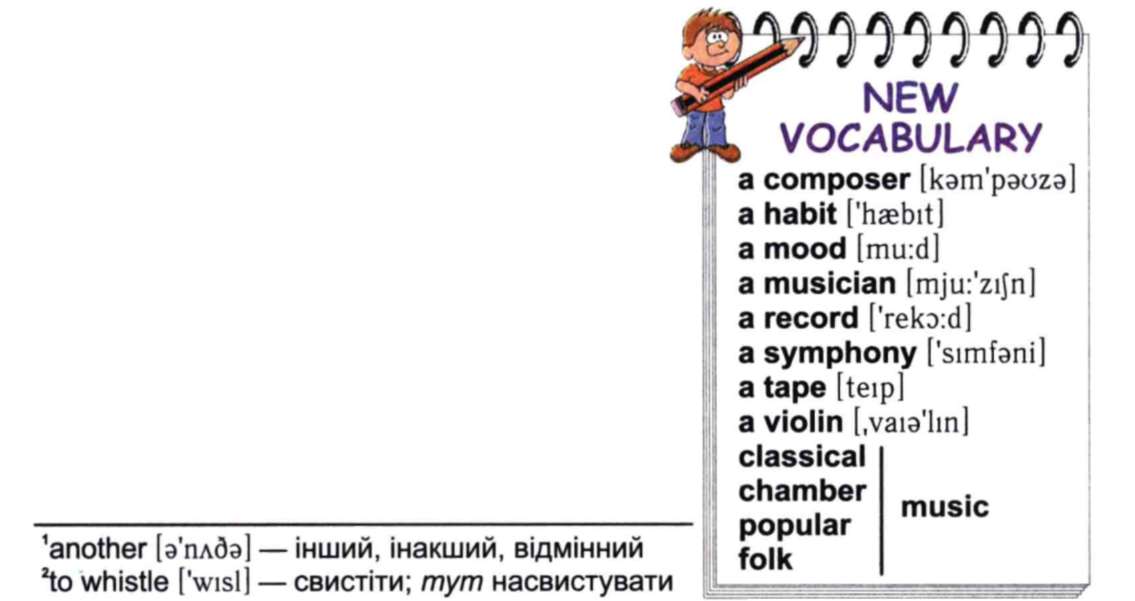|
|
1. Read and discuss in groups.
MUSIC ... MUSIC ... MUSIC ... We hear so much music in a week that we may not even notice some of it. Some days you may hear a school band, an orchestra or music in a church. You may hear music from records and tapes, or on the radio. You hear music during television shows and movies ...
Everybody says he or she likes music: some people enjoy classical music, others are fond of popular music. But are all of them good listeners? One of the most important things is to learn to be a good listener. Only then one can learn to understand music. You may say, "It's very easy! We hear lots of sounds around us." But hearing is not listening. Are we really listening to music on the radio while working, before leaving for school or after coming home? I think not, because our ears absorb many other sounds with the music, such as the noises from outside, conversation, or a baby's crying.
To be a good listener means to listen to music without doing anything else. And that's not very easy. One has to sit still and concentrate on listening. At last it will become a habit. That's one thing. The other is to read about composers whose music we are interested in, about their works and conditions in which those people had to live and create. People often say, "I often go to concerts, as I like music very much." They may go to a concert of chamber music, attend a symphony concert, a piano, a violin or a choir concert. It's all the same to them. Does it mean that they love music or they understand it?
You should know music is a language. People use it to express moods and feelings. Some music is happy, and another1 is sad. Some is serious, and another can make people laugh. Many popular songs are love songs.
People make their own music, too. Whenever you hum or whistle2 a tune, you are making music. Classes and choirs sing together. Many boys and girls study to become good musicians. They may take singing lessons or learn to play a musical instrument.
And what about you?
|

|
|

